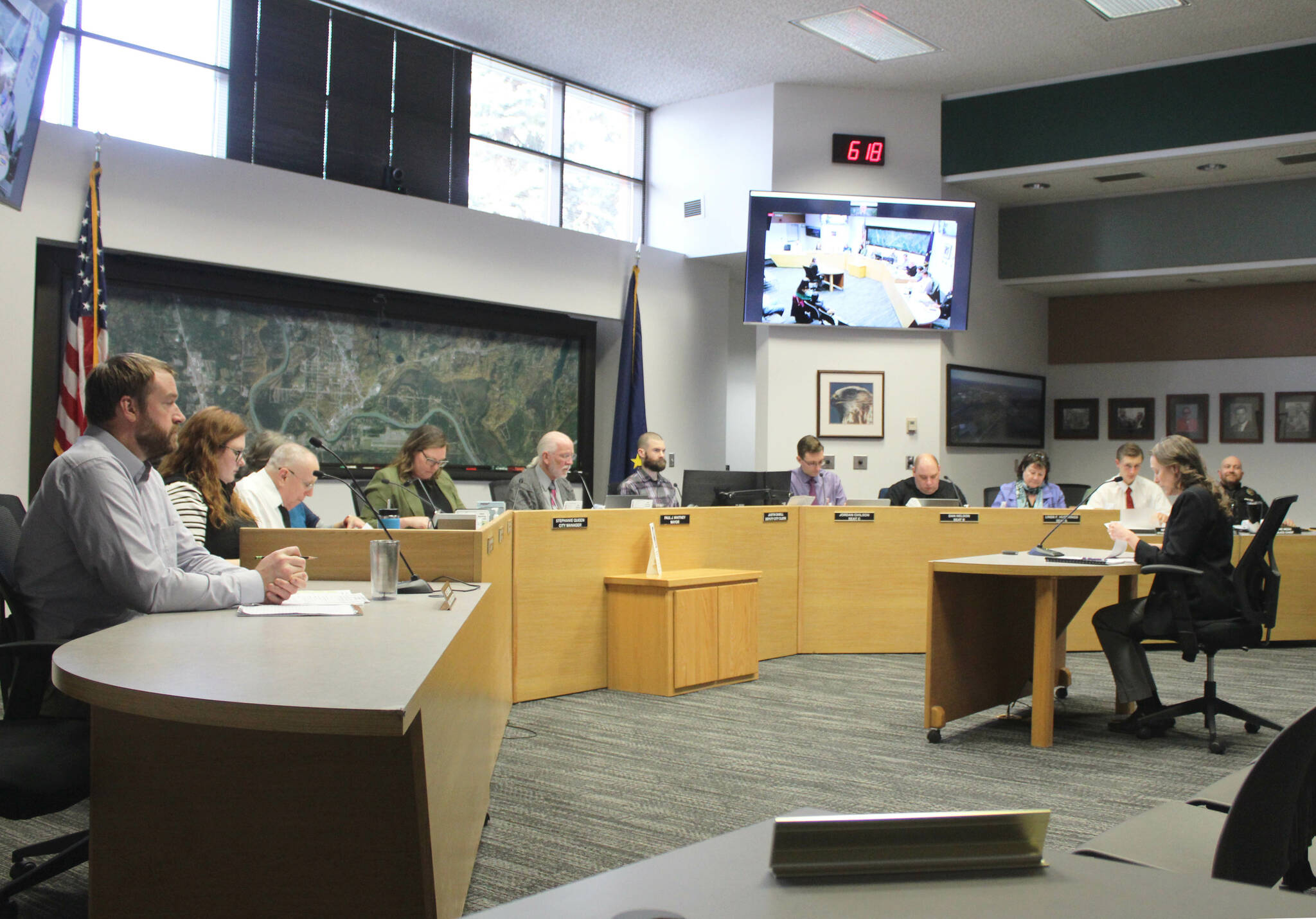No changes to Soldotna’s city and property taxes and a change in health care providers for city employees are elements of a draft budget document presented to Soldotna City Council members by city administration during work sessions this week.
Across two work sessions this week, Soldotna City Manager Stephanie Queen and Soldotna Finance Director Melanie Imholte presented the city’s draft biennial budget, which covers the two upcoming fiscal years. Fiscal year 2024 begins on July 1, 2023, and ends on June 30, 2024. Fiscal year 2025 begins on July 1, 2024, and ends on June 30, 2025.
Once approved, the budget document will be Soldotna’s second biennial budget. A biennial budget, unlike an annual budget, is adopted once every two years and covers two fiscal years. Administrative changes, if needed, can be brought back after the first year as part of a mid-biennial review.
“Last year, we spent a lot of time reorganizing the document because it was the first time we had built it,” Queen said of the biennial budget. “This year, it’s just updating it for the plans and pieces, so I think that’s been a success.”
Imholte agreed that the biennial budget model saves the city “a lot of time.”
Queen told council members during Monday’s work session that, overall, she is “proud” of the draft document. The budget, she said, is balanced and describes city funds that will maintain “a strong financial position” for Soldotna moving forward.
The city, for the first time in Soldotna’s history, is projecting more than $10 million in sales tax revenue for the upcoming fiscal year. Last year was the first time the city projected more than $9 million in sales tax revenue and the year before that was the first time more than $8 million in sales tax revenue was projected.
Sales tax revenue is Soldotna’s largest source of revenue, and is expected to account for about 85% of all the money that flows into the city’s general fund. Of that, just over 90% comes from taxes collected from the city’s brick and mortar businesses. The rest would come from remote sales tax, which the city collects via the Alaska Remote Seller Sales Tax Commission, established in 2019.
Queen said the city is expecting a 25% increase in revenue from remote sales tax for the upcoming fiscal year, totaling about $783,000. The city expects the increase to be tied to new online retailers who join Alaska’s remote sales tax commission.
No changes are proposed in the draft budget to Soldotna’s sales or property taxes. Soldotna’s sales tax of 3% was set in 1984, and the city’s mill rate, currently half of one mill, has decreased six times since it was set in 1983. The city is forecasting about $355,000 in revenue from property taxes for the upcoming fiscal year.
Mill rates are used to figure out how much someone will pay in property taxes during a certain fiscal year. To calculate how much property tax they expect to pay, an individual must divide the mill rate by 1,000 and then multiply that by their property’s taxable value.
On the expenditure side, Queen said the budget includes 4.5% raises for city staff as well as a lump sum payment meant to reflect increases to the cost of living that staff were not compensated for last year. The city uses Alaska’s Consumer Price Index to make adjustments to the city’s salary schedule. That index rose by 8.1% last year, the largest increase since 1981.
“We like to pay close attention to this metric because it impacts our expenses and costs arising for us,” Queen said. “It also impacts cost of living expenses for our employees. When we set wages and salary and benefits, it’s one of a couple important things we consider because we want to keep employees whole in terms of letting their wages keep track with inflation.”
The proposed salary increase, if approved, would come as the city is already working on ways to boost recruitment and retention of city employees. The council adopted earlier this month a recruitment and retention strategy that, among other things, authorized the city manager to implement hiring bonuses and establish relocation assistance and employee referral programs.
City administration also recommended as part of the current biennial budget process that the city change health care providers from Aetna to Premera. After Soldotna’s insurance premiums increased by more than 23% for the current fiscal year, the budget document says, the city hired a consultant to analyze the city’s existing plan and compare it to other municipalities.
“Based on the initial results, Administration feels the City’s current health insurance plan is no longer competitive, and we recommend a switch to Premera,” the budget document says.
The city estimates that such a switch, if approved, would save about $477,000.
It is the city’s intent, Queen said during the council’s Tuesday budget work session, to bring the budget before council members for introduction at the council’s May 10 meeting. If approved for introduction, the budget could be amended and given final approval at the council’s May 24 meeting.
Soldotna’s budget work sessions can be streamed on the city’s website at soldotna.org and on the city’s YouTube channel.
Reach reporter Ashlyn O’Hara at ashlyn.ohara@peninsulaclarion.com.

